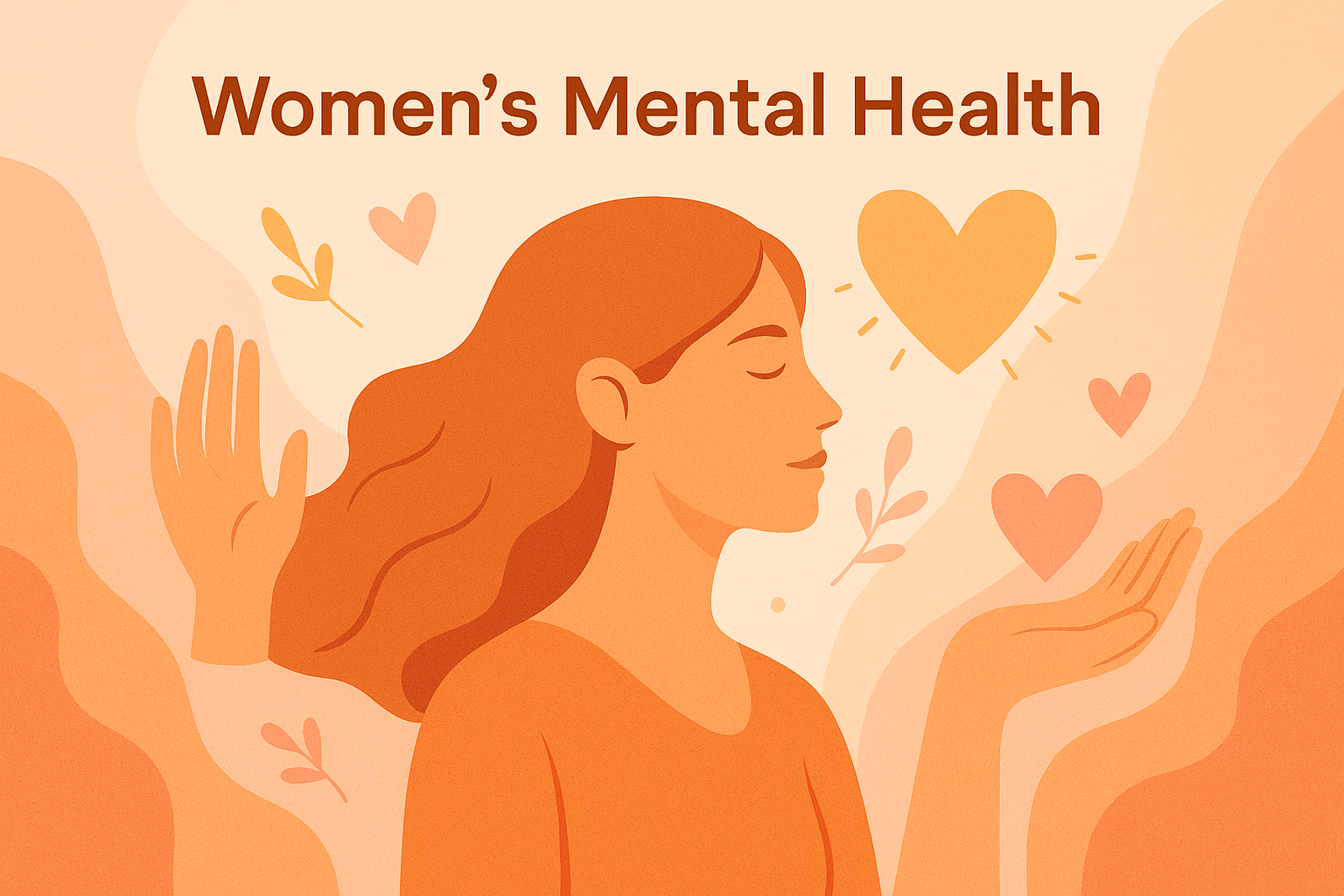Women’s experience mental health conditions differently due to hormonal fluctuations, pregnancy, motherhood, and menopause. Social expectations and caregiving roles further increase stress, making women more vulnerable to issues like depression and anxiety.
Common Mental Health Concerns in Women
- Premenstrual Syndrome (PMS) and PMDD: Emotional changes before periods.
- Perinatal and Postpartum Depression: Mood swings during and after pregnancy.
- Menopausal Mental Health Issues: Irritability, sadness, or anxiety.
- Stress and Relationship Struggles: Work-life balance and caregiving burdens.
Symptoms to Watch For
- Persistent sadness or mood swings
- Sleep and appetite changes
- Feelings of guilt or hopelessness
- Withdrawal from family or social life
- Thoughts of self-harm (requires urgent help)
How Women’s Mental Health Is Treated
- Counseling & Therapy: Talking therapies to manage emotions.
- Medication: Antidepressants or hormonal treatments if necessary.
- Support Systems: Family support, peer groups, and self-care practices.
- Lifestyle Changes: Yoga, exercise, meditation, and stress management.
Breaking the Stigma
Many women hesitate to seek help due to stigma. Recognizing symptoms early and consulting a mental health professional can prevent worsening conditions and improve overall well-being.
Final Thoughts
Every stage of a woman’s life brings unique challenges. With awareness, support, and professional care, women can achieve emotional balance and live healthier lives.

